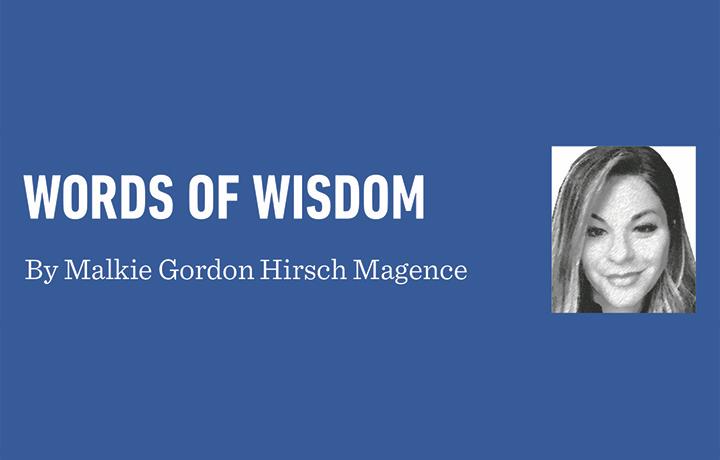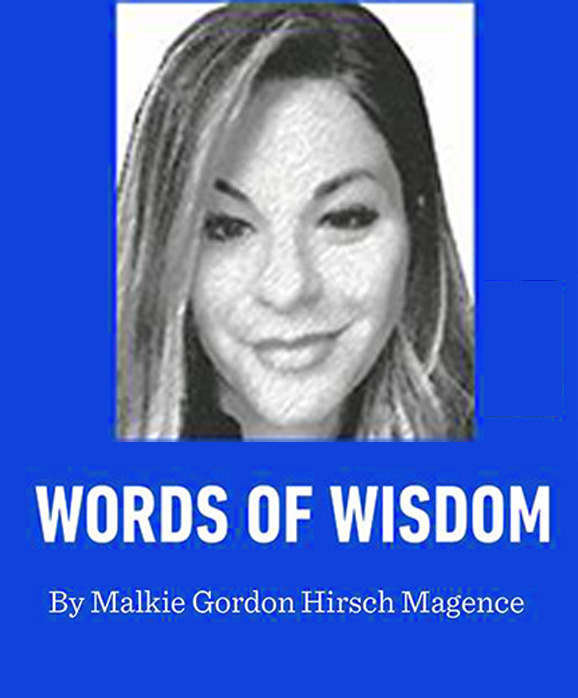Widowhood—Shaken And Stirred
By Malkie Hirsch Magence
The first time I tasted what it felt like to experience sudden loss was when my late father-in-law passed away over Shavuot.
He’d been diagnosed a week after Pesach that year with a serious illness. Treatment began immediately. And while shock and disbelief ran its course through the family, none of us could have predicted how quickly it would all unravel.
The doctors gave him a fighting chance—so hope stepped in, as it often does when people are thrust into impossible situations.
I remember my husband, his siblings, and my mother-in-law doing everything they could to keep his spirits high and make him as comfortable as possible.
But when I was near him, I felt the overwhelming sadness that had settled into his once calm, sweet demeanor.
If I’m being honest, I didn’t spend much time with him at the very end. It was too painful—to sit with someone who already knew the truth we were still pretending wasn’t real.
His days were numbered.
My sister-in-law had planned to stay with my in-laws for the holiday. She was due to give birth and needed someone to care for her toddler just in case she went into labor during yontif.
That’s where my mind went when we got a phone call on the first night at 10:30 p.m.
I told myself it must be about her needing to head to the hospital—but even as I thought it, I knew that wasn’t it. You don’t call an older brother late at night for that, not when your parents are there.
What actually happened was that my father-in-law collapsed. Hatzalah was en route.
Moshe jumped up and ran out. I barely saw him over the next few days.
It was a three-day yontif. It was also the yahrzeit of my father-in-law’s father. We had planned a kiddushat shul to commemorate it—even as we grappled with the unknown.
He passed away on the third day of yontif. On the very day of his father’s yahrzeit.
When yontif finally ended, my mother-in-law came straight to our house before returning to her own.
She stepped out of the car, and this woman—logical, stoic, and always sensible—collapsed into Moshe’s arms and sobbed.
“I tried keeping him alive. I really did try,” she cried, clinging to her son in the dark.
That was the first time I felt the helplessness of watching something unravel—and not being able to fix it.
The moment you realize parents aren’t superheroes, just people doing their best with a few more years of life experience.
It’s a pain that’s brutal and honest. And every time I hear of someone young losing a parent, I go right back to that moment.
But in my wildest dreams, I never imagined what would come a few years later.
The suddenness of my own husband’s death—especially because he wasn’t sick—sent shockwaves through our world. People didn’t just grieve. They were shaken. If it could happen to him, it could happen to anyone.
And it has.
Maybe it’s how we consume news now, but it seems like we’re inundated with stories of loss, broken families, and devastation. Since my husband’s passing, I’ve sat in far more shivah houses than I ever expected.
There’s an invisible thread that connects young widows and widowers—those of us living in this out-of-order grief. We’re the ones left to raise young children, make every decision alone, navigate the practical and emotional, while no longer recognizing the person we see in the mirror.
I’ve lived through those emotions. And to explain what it feels like to look like yourself on the outside while being a stranger to yourself on the inside—there aren’t words for that.
Everything changes. Your social circle. Your family dynamics. Even the people who knew you best don’t recognize who you’ve become.
The grief is deep. The sadness relentless. The fear that you’ll never be whole again? Very real.
Years have passed since those early days. And while time helps, grief never fully leaves you. It becomes part of who you are. A muscle memory of loss.
I felt it again recently, sitting with a group of widows and widowers at a small gathering. Call it group therapy, call it community—we all just got each other.
Some had remarried. Some were just months out from their loss. But being in that space, seeing the stages of widowhood play out in real time—grief, dating, blending families, moving forward—it reminded me how important it is to have safe spaces where we’re seen, heard, and understood.
I went as a support for a friend. But I left with much more.
This is dedicated to every man and woman who continues to show up for life, to love and raise families, to pivot in unimaginable ways, even after their world was shattered.
You are not alone.
Malkie Gordon Hirsch Magence is a native of the Five Towns community, a mom of 5, a writer, and a social media influencer.










